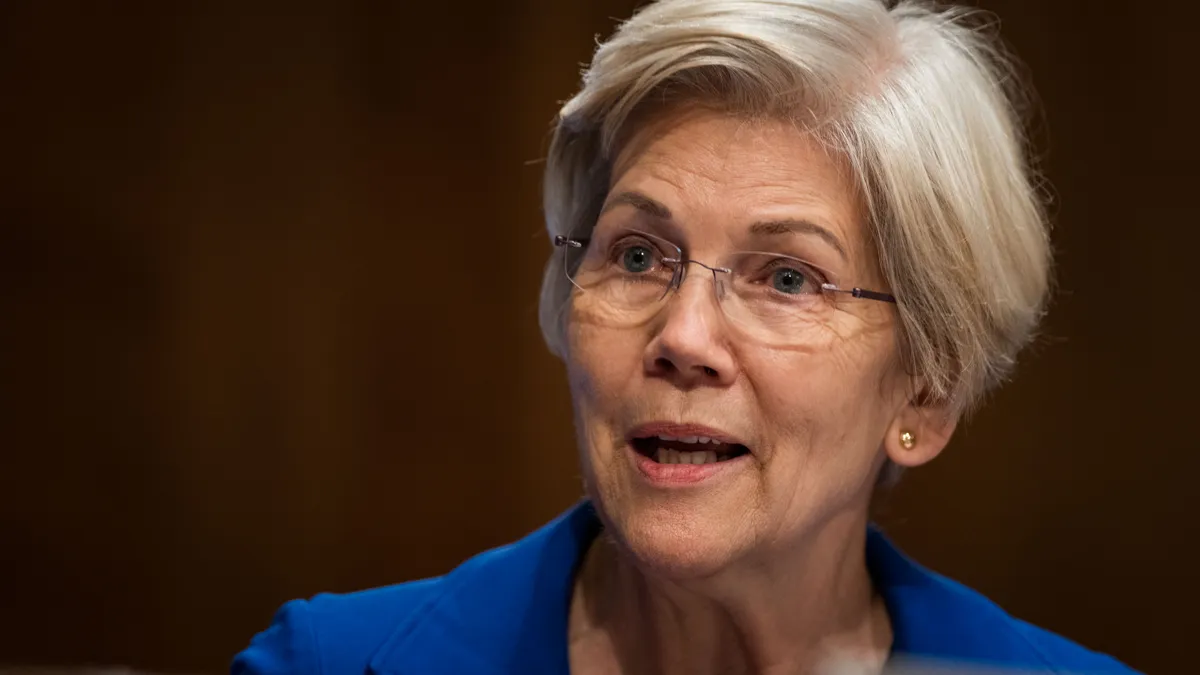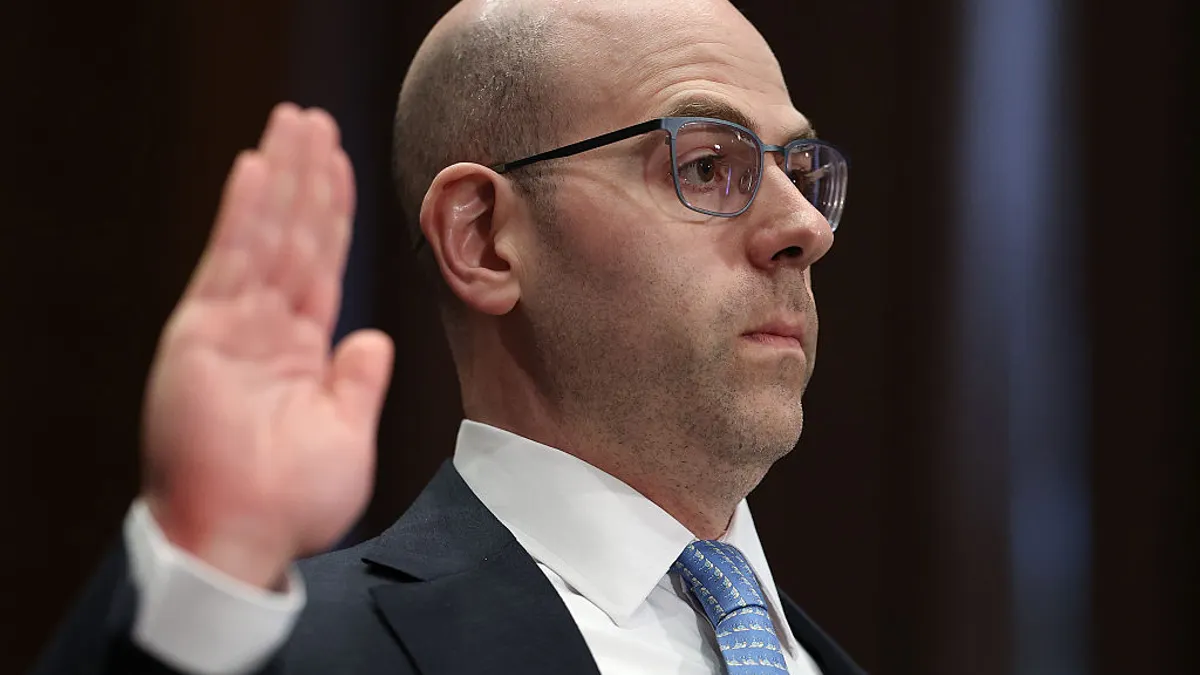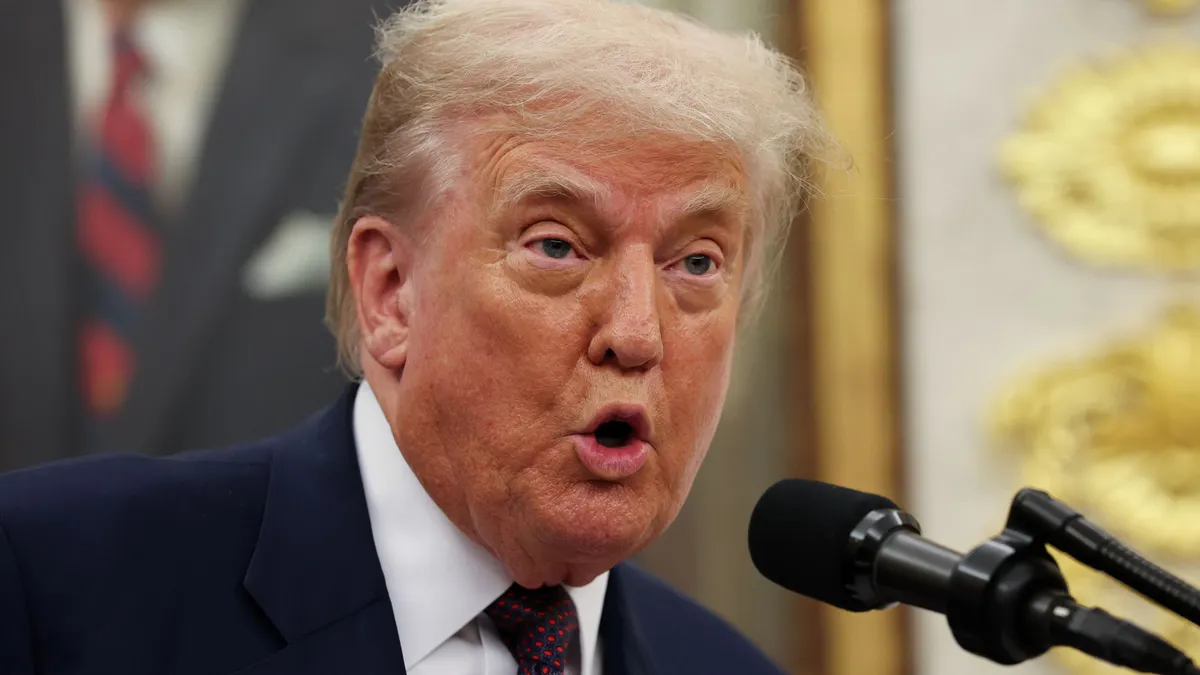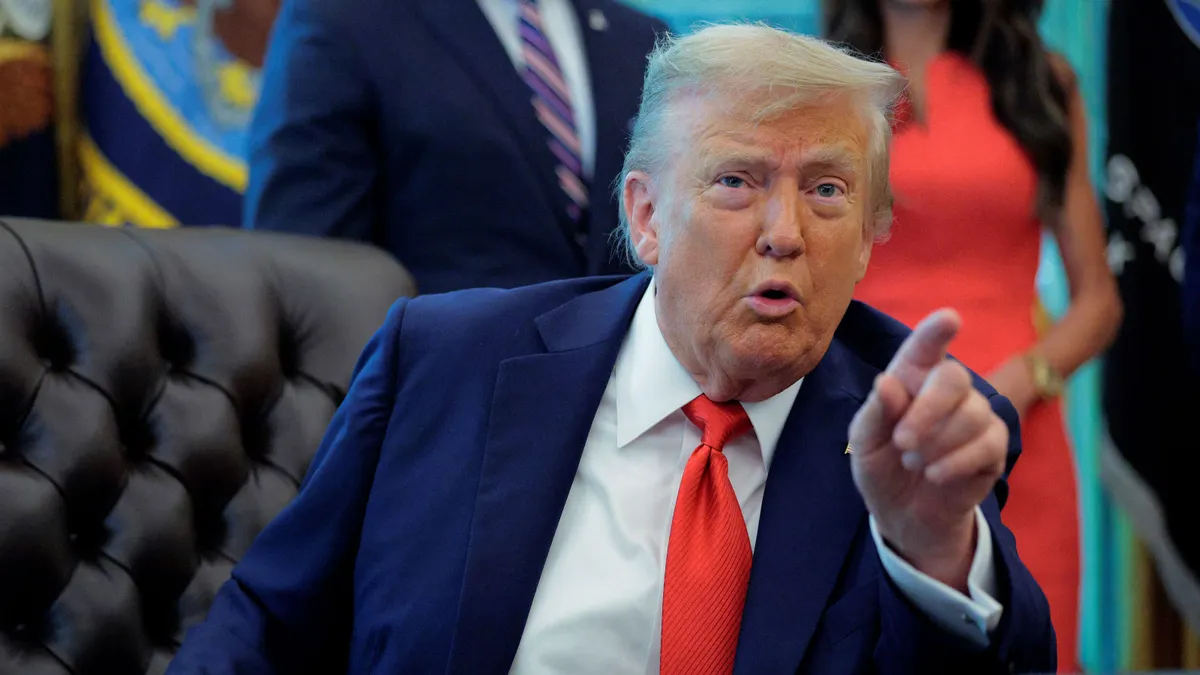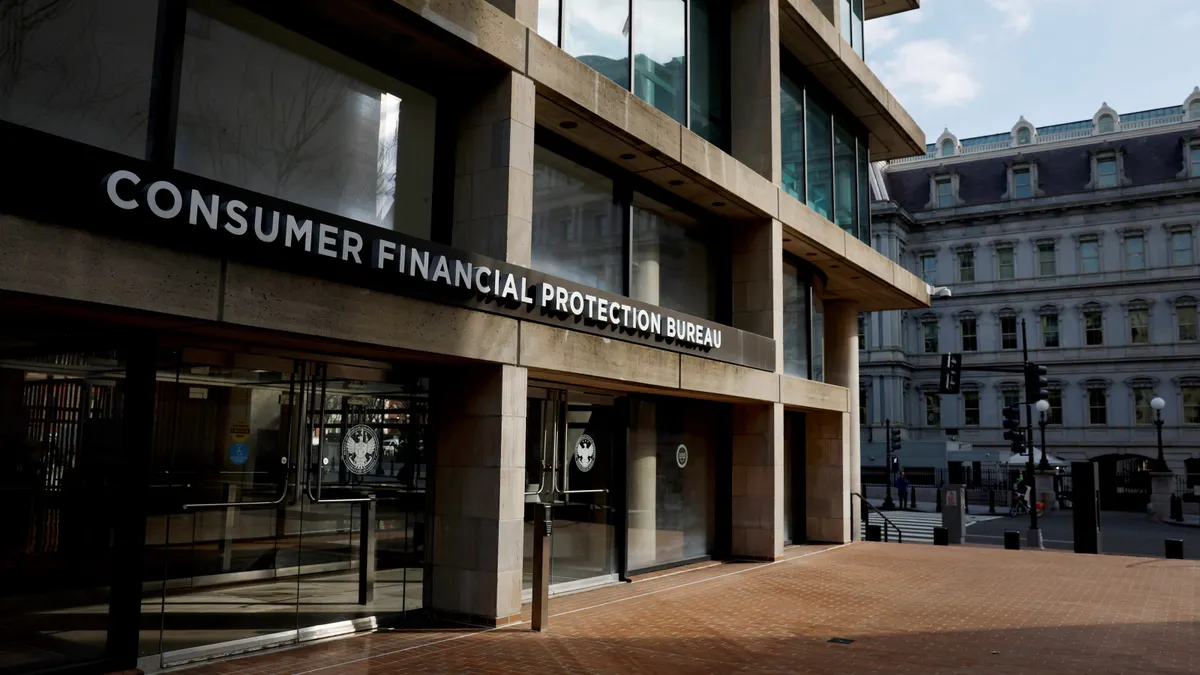While the Senate Banking Committee on Wednesday seemed to coalesce around de-banking being a problem, lines were drawn as to whether blame lies with bank regulators or lenders themselves.
De-banking has garnered more attention in recent weeks, since President Donald Trump called out Bank of America and JPMorgan Chase last month, alleging they shut out conservative customers.
Former Consumer Financial Protection Bureau Director Rohit Chopra recently noted “increasing agreement” about the issue across the political spectrum, and called for “bright line” prohibitions and greater transparency to combat allegations of politicized de-banking.
And the cryptocurrency industry has contended the Federal Deposit Insurance Corp., under the Biden administration, ordered financial institutions to “de-bank” crypto firms, as part of Operation Choke Point 2.0.
Just before Wednesday’s hearing, the FDIC released 175 documents related to its supervision of banks engaging in crypto-related activities, which Acting Chair Travis Hill said “reflects a commitment to enhance transparency.”
Also prior to Wednesday’s hearing, the committee’s ranking member, Sen. Elizabeth Warren, D-MA, issued a letter urging Trump to support the work of the CFPB, “the main federal agency working to stop unfair debanking,” and direct other agencies to address de-banking.
She pointed to an analysis revealing nearly 12,000 de-banking related complaints have been filed by consumers in the past three years, with more than half of those complaints made against the four biggest U.S. banks – JPMorgan Chase, Bank of America, Citi and Wells Fargo.
“This shouldn’t be happening, and we need to figure out why and who is responsible,” she said during a Wednesday hearing examining the impacts of de-banking.
But “Treasury Secretary and Acting CFPB Director Scott Bessent’s decision to halt activity at the CFPB will only impede efforts to stop debanking,” Warren warned Trump in her letter.
Warren noted five different CFPB rules that would address de-banking. “If the president is serious about stopping de-banking, then he needs a strong CFPB as his partner,” she said.
Committee Chair Tim Scott, R-SC, said during Wednesday’s hearing that he’s “committed to a bipartisan solution to stop this form of discrimination. This hearing is just the beginning.”
Still, committee members and witnesses took different views as to who’s at fault: regulators or banks.
“We are over-regulating in a way that is de-banking people de facto,” said Sen. Thom Tillis, R-NC. “We’ve got a lot of regulator-initiated de-banking going on with this concept of reputational risk.” That concept is overused by bank examiners and supervisors, he contended, and it changes depending on who’s president.
Nathan McCauley, CEO of crypto platform Anchorage Digital, and Stephen Gannon, a partner at law firm Davis Wright Tremaine, also pinned the problem on regulators, not banks.
“The banks are not making this up,” Gannon said. “They like to have customers like all businesses.”
McCauley said big banks wanted to work with the crypto industry, and regulators discouraged it, “pressur[ing] banks to shut an entire industry out of the federal banking system.” The nail in the coffin, he said, was the January 2023 joint statement from the Federal Reserve, FDIC and the Office of the Comptroller of the Currency, warning national banks against serving crypto clients.
His company, a federally chartered cryptocurrency bank, was de-banked in 2023, and struggled to find a new bank partner.
“The most devastating part of this, to the crypto industry, has been that betrayal of trust,” McCauley said.
The problem is “pervasive,” and it’s generally assumed that if you’re a crypto company, you’ve had trouble accessing the bank system, he added.
But Mike Ring, CEO and co-founder of Old Glory Bank, pointed to big banks, which he said are the problem.
Old Glory was established in 2023 to serve those who’ve been de-banked. The simplest answer to de-banking is a market solution like competition, not a regulatory one, Ring said.
“You’ve got to make it easier to start and run banks,” he told the committee.
Aaron Klein, a senior fellow at the Brookings Institution, pointed to a need to rethink anti-money laundering requirements and suspicious activity reporting priorities, noting banks are filing far more SARs than they did years ago.
“We keep adding more targets, never taking anybody off the list,” he said.
Gannon, too, said “the partnership between banks and regulators needs to get into the 21st century,” employing better technology rather than having armies of people filing SARs.
“If you have better data, you will have better results,” he said.



